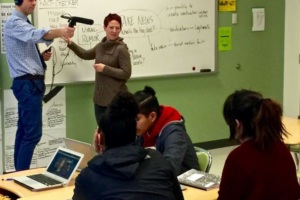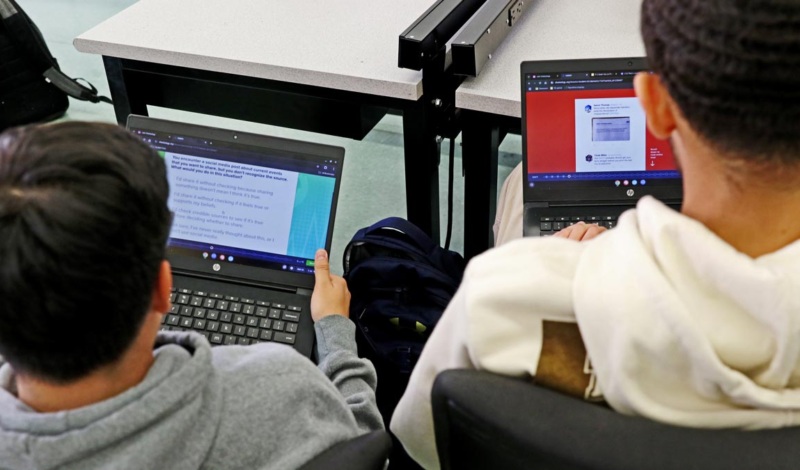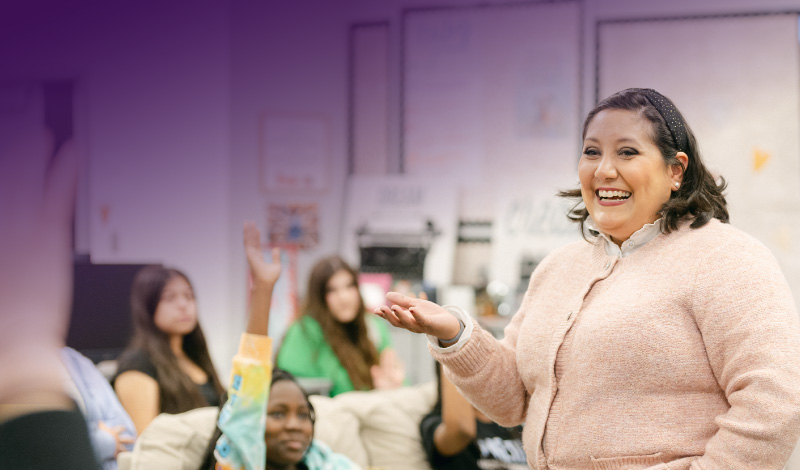The Checkology virtual classroom: ‘Knowledge that is desperately needed to survive in today’s world’
When Dee Burek started teaching debate at Stone Bridge Middle School in Allentown, New Jersey, six years ago, she soon noticed a trend: Her students’ arguments were riddled with inaccuracies.

For his report on NPR, journalist Cory Turner (left) records student interaction with Wakefield High teacher Patricia Hunt as she leads a lesson from the Checkology™ virtual classroom.
No matter how many times she urged them to check their sources, the students would say, “But it’s on the internet,” “There is no author” or “It looks like a real source.”
Pushing them to delve deeper proved challenging until Burek discovered the News Literacy Project’s Checkology™ virtual classroom while researching curriculum for an upcoming journalism elective. She started piloting it with her eighth-grade journalism students in the fall — a time rife with real-world teachable moments that blended perfectly with the platform’s content.
“Just as I was teaching about citizen watchdogs, a package arrived in the mailbox of a New York Times reporter with some pages of Donald Trump’s tax return,” she said. “Then as I taught the lesson on bias, BuzzFeed released a dossier on Donald Trump. The kids were so excited to talk about it the next day and start trying to get to the truth.”
Burek was so impressed with the platform that she took one of her students to a school board meeting to advocate for its use in classrooms throughout the district.
“The Checkology™ virtual classroom has empowered my students,” she said. “Their critical-thinking skills have improved. They will leave my class with knowledge that is desperately needed to survive in today’s world.”
As news literacy is increasingly being recognized as an essential skill, teachers nationwide are finding the platform to be a seamless way to incorporate it into their existing curricula.
“The students and I are loving [the] Checkology™ [platform]!” said Patricia Hunt, a government teacher at Wakefield High School in Arlington, Va., whose participation in the fall pilot was featured in reports on NPR and on WJLA-TV, the ABC affiliate for Washington, D.C. “It has fit beautifully with our examination of the political process and focus on core democratic values. The students continually make connections to the material and learning, especially in light of the coverage and impact of fake news.”
Across the country, Liz Ramos, who teaches AP government and world history at Alta Loma High School in Rancho Cucamonga, Calif., said the platform has helped give her students “the tools to evaluate credible takes on a story, examine and understand the various purposes of news and media, and to be aware of bias and deceit by providing a framework to question the news and social media postings and be critical thinkers for reference in life moving forward.”

